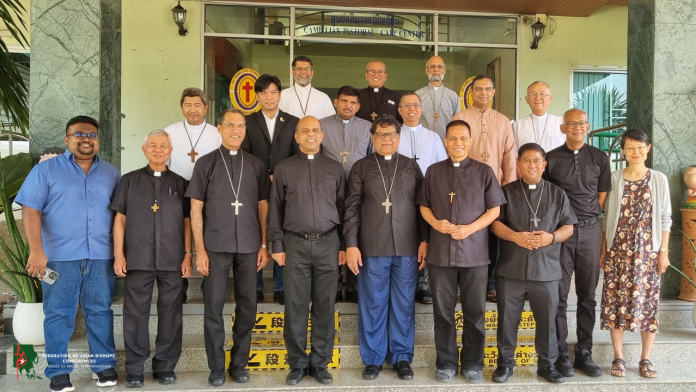Anthony G. Roman
A formation program christened BISCOM for the bishops of FABC highlighted the
role of communication in episcopal ministry. The five-day event held at Bangkok,
April 15-20, attended by thirteen bishops from four Asian countries, was organised
by the Office of Social Communication of the Federation of Asian Bishops’
Conferences (FABC-OSC).
BISCOM, or Bishops’ Institute for Social Communication, is a flagship program of the
FABC-OSC that offers ongoing animation and formation for Asian Bishops.
This year’s BISCOM was the ninth such program, and dealt with a wide range of
issues in communication in the context of the synod on synodality underway in the
church.
FABC-OSC Chairman Cardinal Sebastian Francis of Penang, Malaysia, in his
inaugural address said, “We are fully human and Christian simultaneously. But until
we experience the love of God deep within us, our hearts will remain restless, in the
words of St. Augustine of Hippo.” Referring to the latest document of the Vatican on
communication, he pointed out the need to be “fully present” online and offline. The
underlying reason behind our communication, he said is the Pentecost experience.
Citing Pope Francis’ World Peace Day Message on artificial intelligence and peace,
Cardinal Francis rallied fellow bishops on the need for formation and updating in the
area of social communication.
He also urged the bishops to study and reflect on Pope Francis’ Message for the
58th World Communication Day this year on artificial intelligence and the wisdom of
the heart towards fully human communication.
In a video interaction, the Prefect of the Dicastery for Communication, Dr Paolo
Ruffini outlined ways in which the Church could move “towards full presence” in
communication. He reminded the bishops of the Church’s mandate to evangelize
using traditional and contemporary means of communication.
The resource persons for the program included Dr. Christina Kheng, a leading Asian
theologian from Singapore, Fr. Clarence Devadass, former Executive Secretary of
the FABC Office of Theology from Malaysia, Dr. Peter Monthienvichienchai,
Secretary General of Signis, FABC-OSC Secretary Fr. George Plathottam and Mr
Limson Paul, a cyber security expert from India. Mr. Daniel Roy Santiyagu provided
technical support to the program.
These resource persons covered a wide range of issues around the theme “Synodal
Church: Episcopal Ministry and Communication”, including the synodal journey and
the synthesis report, the various communication documents from Inter Mirifica, crisis
management and public relations, artificial intelligence in episcopal ministry
From the first BISCOM on “Church and Public Relations” in 1996, different themes
have been covered, including hands-on training sessions on Internet and computing
skills in 1999 and 2007.
In 2001, FABC-OSC collaborated with the Office of Education and Student
Chaplaincy on BISCOM III in communication formation in priestly ministry and
mission.
In 2004, FABC-OSC organized a BISCOM on “Interreligious Dialogue as
Communication” with the Office of Ecumenical and Interreligious Dialogue.
A 10-day training on public relations was held in Manila in 1999, and in 2002,
BISCOM IV on the communication of young people was co-organized with the Office
of Laity and Youth Desk. In 2013, BISCOM VIII tackled the theme “Social Media:
Challenges and Opportunities for the Church in Asia.”
Besides BISCOM, FABC’s animation and training programs for Bishops include
BILA (Bishops’ Institute for Lay Apostolate), BIMA (Bishops’ Institute for Missionary
Apostolate), BISA (Bishops’ Institute for Social Action), and BIRA (Bishops’ Institute
for Interreligious Affairs.
The each of the nine specialized offices of the Federation handle a “Bishops’
Institute” related to their specific ministry.
(end)



